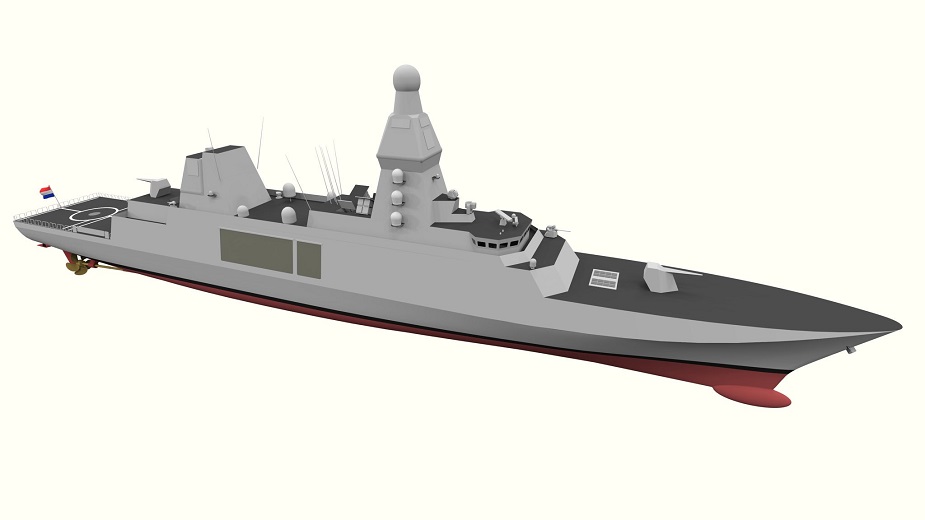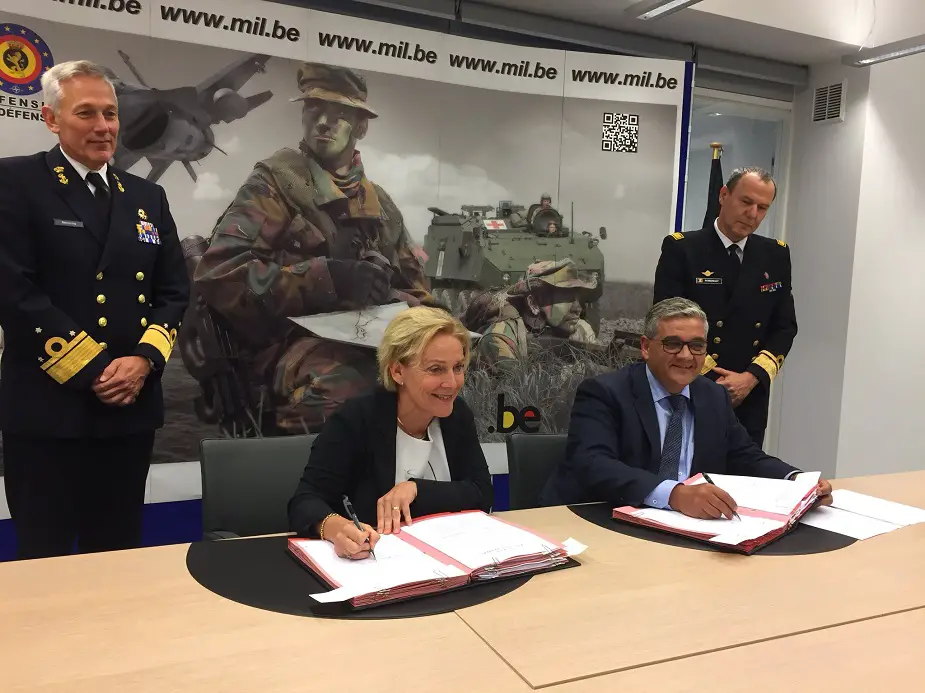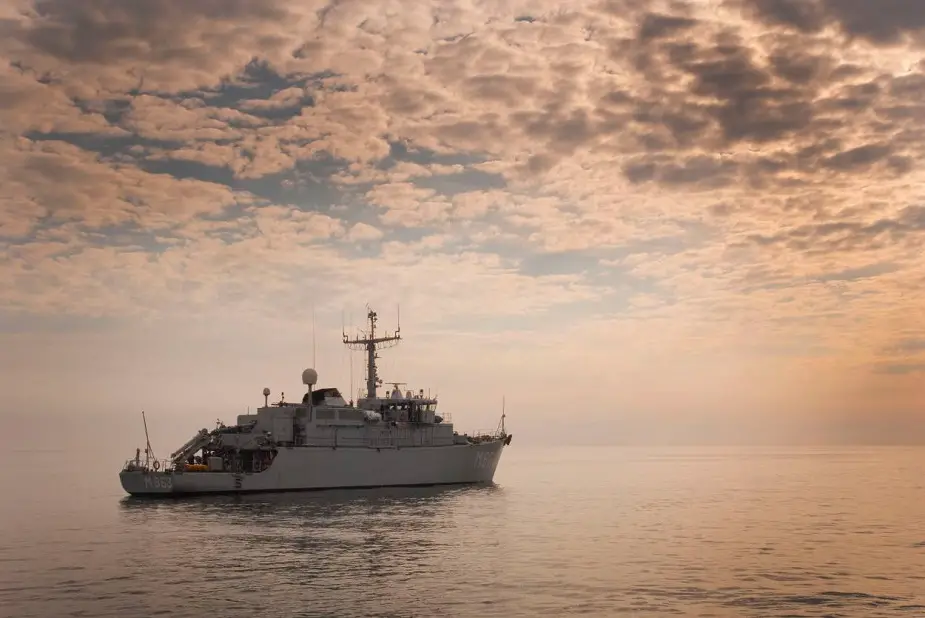Breaking news
Belgium and the Netherlands Signed the MoU for New Frigates & MCM Vessels.
Belgium and the Netherlands formally launched yesterday the joint procurement of 4 frigates and 12 mine counter measure (MCM) vessels to be split evenly between the two navies. Dutch defence minister Ank Bijleveld and her Belgian counterpart Steven Vandeput signed the MoU in Brussels to begin the purchase procedure.
 Artist impression of the future M-frigate replacement.
Artist impression of the future M-frigate replacement.
In December 2016, defence Ministers from Belgium & the Netherlands Signed an MoU for the Common Procurement of Vessels: It was then agreed that for the replacement of the so-called M-class frigates Netherlands would take the lead while Belgium would be leading the MCMV program. The Dutch Defense organization requested a bid (without competition) from local shipyard Damen Schelde Naval Shipbuilding and Thales Netherlands. Regarding the MCM vessels, several European designs are competing including the ones from Saab (MCMV 80), BMT Group (Venari 85) and Sea Naval Solutions (Deviceseas).
 The two Defense Ministers inking the joint acquisition process for the next generation frigates and MCM vessels
The two Defense Ministers inking the joint acquisition process for the next generation frigates and MCM vessels
M-frigates Replacement
According to the RNLN, the end of the life of the two M-frigates (Karel Doorman-class of multi-purpose frigates F831 HNLMS Van Amstel and F828 HNLMS Van Speijk) is nearing. They are less able to cope with current and future threats, their systems are outdated and spare parts are becoming difficult to obtain, with the consequence of disproportionately high maintenance costs. Same applies to the two M-frigates of the Belgian Navy: The Leopold I and the Louise-Marie.
The Dutch Ministry of Defence started design studies for the M-frigates replacement in 2013. The new frigates are again set to fulfill a general purpose role with ASW as its specialty. Since the Royal Netherlands Navy deploys only six frigates in its fleet, the new surface combatants have to be able to perform well in all areas. This means that the vessels will be fitted with Standard Missile 2 or ESSM-projectiles.
The construction of a complex ship like a frigate takes more than 7 years. The first new frigate is expected to be operational from 2025 onwards.
 HNLMS Vlaardingen in the Baltic Sea during the international exercise Baltops 2012.
HNLMS Vlaardingen in the Baltic Sea during the international exercise Baltops 2012.
MCM vessel replacement
The RNLN fleet has 6 Alkmaar-class (Tripartite class) MCM vessels. The Belgian Navy fleet has 6 vessels of the same class as well. These ships were designed in the 1980ies and they are reaching the end of their lifespan. According to the Dutch navy, they are increasingly unable to detect modern sea mines. The deteriorated security situation increases the probability of sea mine presence and there are still many un-exploded and un-detected sea mines from the First and Second World War in the sea.
The future of maritime mine control lies in unmanned and partly autonomous systems. These systems are deployed at a safe distance from a manned mine-control vessel acting as mothership. In addition, modern MCM vessels are designed in such a way that they can operate worldwide and under high threat. The RNLN is planning to receive its new MCM systems (manned and unmanned) between 2025 and 2030 while the Belgian Navy expects delivery of its first vessel in 2023.


























